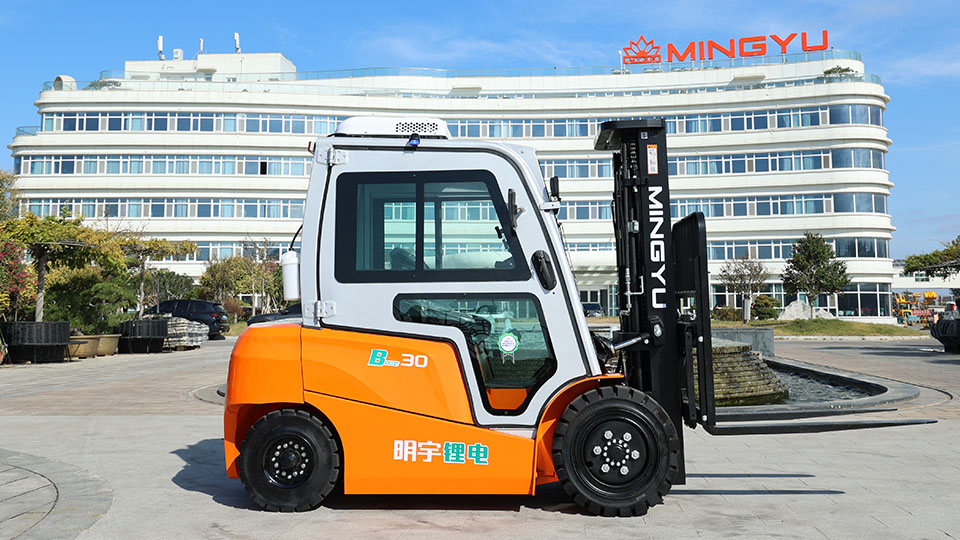
Can My Employer Keep My Forklift "License"? A Technical Analysis of Operator Certification CustodyThe question of whether an employer has the right to retain an employee's forklift "license"—more accurately termed a Powered Industrial Truck (PIT) Operator Certification or Proof of Training—is a frequently encountered point of contention in industrial and logistics sectors.
The answer is rooted in the fundamental differences between a state-issued driving license and an employer-issued safety certification, as mandated by the Occupational Safety and Health Administration (OSHA).This analysis will detail the legal framework governing operator training documentation, clarify the custody requirements for the physical certificate or ID card, and outline the best practices for both employers and employees regarding these essential safety records.
1. The Nomenclature Clarification: License vs. CertificationThe primary confusion stems from the interchangeable, but technically distinct, use of the terms "license" and "certification."1.1 The Forklift "License" (State/Government Issued)Definition: A traditional license, such as a driver's license, is typically issued by a state or government agency (e.g., Department of Motor Vehicles).1 It generally verifies that the individual has met the minimum legal criteria to operate a vehicle on public roads.Relevance to Forklifts: Most jurisdictions do not require a state-issued license to operate a forklift within a private workplace (warehouse, factory floor). A standard motor vehicle license only becomes relevant if the PIT is operated on public roads, and even then, it does not fulfill the OSHA safety training mandate.2Ownership: The physical state-issued license is unequivocally the property of the individual/license holder and the issuing state agency. An employer has no legal right to retain a government-issued driver's license.

1.2 The Forklift Certification (Employer Issued/OSHA Mandate)Definition: The documentation in question is the Forklift Operator Certification required by OSHA Standard 29 CFR 1910.178(l).
3 This is not a universal "license" but rather a site-specific, equipment-specific certification provided by the employer.4 It verifies that the employee has successfully completed:Formal (classroom) instruction.Practical (hands-on) training.An evaluation of their operating performance on the specific equipment they will use and in the specific workplace environment where they will work.The Certifying Body: Under OSHA regulations, the employer is the entity responsible for, and legally liable for, the certification of the operator.5 The employer shall certify that each operator has been trained and evaluated as required by this paragraph (l).6The Document: The physical proof of training (often a wallet card, certificate, or ID badge) is a document issued by the employer (or the employer's contracted training provider) to satisfy a federal safety requirement.72.
Custody of the Certification Documents: OSHA’s StanceOSHA clearly defines the requirements for maintaining training records, but is less explicit about the custody of the physical, portable ID card or certificate issued to the operator.
2.1 Employer's Obligation to Maintain RecordsOSHA mandates the employer's responsibility to maintain the written certification record.8 This record must include:The name of the operator.The date of the training.The date of the evaluation.The identity of the person(s) performing the training and evaluation.Retention Requirement: The employer must retain the most current certification record for each operator.9 This record serves as the employer's evidence of compliance in the event of an inspection, audit, or incident investigation. This documentation is, therefore, the property of the employer and is critical for maintaining regulatory compliance.2.2 Custody of the Physical ID/Wallet CardThe physical card given to the employee is a token of compliance and serves two primary, operational purposes:Verification: Allows a supervisor or safety officer to quickly verify an operator's authorization before they operate a PIT.Operator Benefit: Serves as a portable record for the employee, which may be presented to a future employer to potentially satisfy the formal instruction part of a new employer’s training requirements (though the new employer must still conduct site-specific practical training and evaluation).Technical Legal Interpretation:Because the certification is fundamentally site- and equipment-specific, the employer holds the ultimate liability for the employee's operation within their facility. Therefore, the employer may technically argue that the physical certification document, being a representation of their required certification process, is their internal documentation.However, the prevailing industry and ethical practice leans against retention:No Explicit Right to Withhold: There is no OSHA regulation that explicitly grants the employer the right to physically confiscate the card from the employee upon separation or termination.Employee's Right to Documentation: While the training record is the employer's property, the physical card is evidence of a completed service (training) paid for by the employer and completed by the employee. Denying the employee possession of the card upon termination effectively prevents the employee from using their training history to seek future employment, which is generally considered an undue restriction.3. The Distinction: Employer-Specific vs. Transferable TrainingThe debate over card custody is closely linked to the question of transferability.
3.1 The Limited Transferability of CertificationA crucial technical point is that forklift certification is not fully transferable from one employer to another.New Employer’s Duty: When an operator changes jobs, the new employer cannot simply accept the old certification card. OSHA requires the new employer to:Review the prior training (where the old card/certificate is useful).Provide site-specific training (covering hazards, traffic, pedestrian routes at the new location).10Provide equipment-specific training (if the new equipment differs from the old, e.g., switching from counterbalanced to reach trucks).11Conduct a new performance evaluation and issue a new certification for their specific workplace.The Card's Value: The card's value to the exiting employee is primarily as proof of prior formal training. Withholding it is an administrative hurdle for the employee, but does not legally invalidate their underlying theoretical knowledge.
3.2 Reasons for Employer Retention (Contested Practices)Employers who attempt to retain the physical card usually do so for the following reasons, though many of these practices are legally or ethically dubious:Control and Exit Procedure: To ensure all company-issued property is returned, treating the badge like a uniform or key card.Preventing Misrepresentation: To prevent the former employee from using a certification that is no longer valid (as it is specific to the former workplace/equipment).Training Cost Recoupment: Less commonly, as a tactic to exert leverage over the departing employee, especially if the employer paid for expensive, external training.

4. Legal and Ethical Considerations Upon TerminationUpon the termination of employment, best practice dictates a specific procedure regarding the certification document.4.1 Employee's Right to Proof of TrainingFrom an employment law perspective, documents pertaining to an employee's professional qualifications, even if paid for by the employer, are generally considered part of the employee's professional portfolio.Best Practice: The employer should allow the employee to keep the physical wallet card. If the employer has a security policy requiring the card's return (e.g., if it doubles as a key card or access badge), the employer must provide the employee with a clear, unambiguous copy of the official training certificate immediately upon separation. This satisfies the employee's need for proof of prior training without compromising the employer's security.
4.2 The Role of "Recertification"The certification expires every three years, or sooner if there is an accident, near-miss, or demonstrable unsafe operation.12Expiration on Termination: When an employee is terminated, the specific certification for that employer's site and equipment immediately becomes invalid for that site. The new employer must recertify the operator. The employer keeping the card therefore achieves little practical purpose beyond administrative control.5. Technical Recommendation and Best Practice PolicyFor organizations seeking regulatory compliance and ethical employee relations, the following technical policy is recommended:Policy AreaEmployer Action/ProcedureRationaleDocumentation Custody (Employer)Maintain the comprehensive, written training record (name, dates, trainer) as mandated by 29 CFR 1910.178(l) indefinitely.Legal compliance; required for audit and incident investigation.Documentation Custody (Employee)Issue the employee a durable, non-access-controlled physical certificate or wallet card upon successful certification.Provides the employee with immediate, portable proof of training completion.Separation ProtocolDo not demand the return of the physical training card. If the card is also an access badge, the access function must be immediately deactivated, and the employee must be provided with an official, certified copy of the training certificate/record.Avoids perceived coercion or undue restriction on future employment; separates safety documentation from site security.Inquiry ResponseIf a future employer inquires, be prepared to release a copy of the former employee’s training record upon their written request and authorization, demonstrating cooperation and ethical HR practice.Facilitates the employee's ability to demonstrate prior training, benefiting their career progression.ConclusionThe question of "Can my employer keep my forklift license?" is best answered by clarifying the term: the employer is obligated to keep the written record of certification because they hold the legal responsibility for the training and the resulting safety compliance.13However, the physical certification card or badge is a document evidencing the employee's acquired skills.1
4 While the certification's validity is terminated upon separation, withholding the physical card or a certified copy of the certificate is not legally required by OSHA and is generally considered poor employment practice. The technically correct and ethically sound approach is for the employer to maintain the required records while ensuring the departing employee receives tangible documentation of the training they completed, allowing them to carry proof of their foundational knowledge to the next employer. The custody of the card should not be used as a point of contention, but rather as an administrative function that respects both regulatory mandate and professional courtesy.
Name: selena
Mobile:+86-13176910558
Tel:+86-0535-2090977
Whatsapp:8613181602336
Email:vip@mingyuforklift.com
Add:Xiaqiu Town, Laizhou, Yantai City, Shandong Province, China